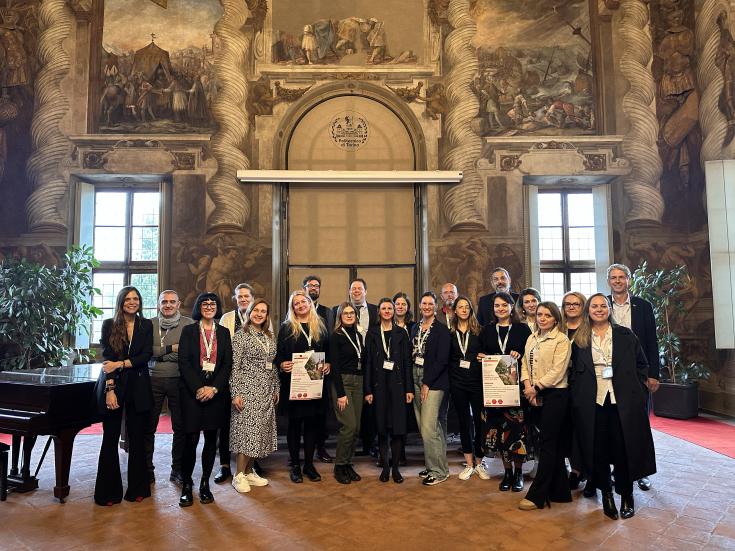REliHE Project Kicks Off in Turin (Italy)
The REliHE project began with an energetic kickoff meeting at Castello del Valentino, the headquarters of the Politecnico di Torino, from April 9 to 11, 2024. This event gathered partners, experts, and stakeholders focused on preserving and innovatively using religious heritage.
A Collaborative Start
The meeting started with a warm reception, setting a collaborative tone. Initial presentations were given by the Politecnico di Torino, the Regional Development Agency of South Bohemia, and the Kujawsko-Pomorskie Voivodeship, sharing their approaches to cultural heritage and regional development. Representatives from the Province of Overijssel, the Zemgale Planning Region, and the Upper Palatinate District then offered their unique views on heritage preservation and development. These discussions highlighted shared challenges and potential collaboration opportunities.
Key Lectures on Innovative Approaches
In the afternoon, key lectures focused on innovative heritage management strategies. Silvia Barbero of Politecnico di Torino introduced the Interreg Systour project, which promotes sustainable tourism in rural areas. Silvia Beltramo discussed integrating religious heritage into European cultural routes, emphasizing its cultural and tourism value.
Andrea Longhi’s research team: Enrica Asselle, Roberto Caterino and Giulia Assalve provided insights into religious heritage and cultural policies in the Cuneo region. Francesco Novelli discussed the preservation, regeneration, and reuse of religious heritage in Italy. Riccardo Palma presented the Interreg Europe Project CYCLING WATERWAYS, which explores the reuse of water-related heritage for tourism. Riccardo Rudiero talked about the role of religious communities in managing heritage, and Victoria Trasobares shared experiences from Territorio Mudéjar on managing religious heritage for tourism and cultural projects.
Study Visits: Practical Applications
The second day included visits to sites in Pavia, a city rich in historical significance. Research shows Pavia had 101 churches that have disappeared, 16 still in use, and 22 repurposed. Participants saw how these sites are being reused while preserving their historical and cultural importance. Learn more about this study visit here
Future Plans and Strategies
The final day focused on the project’s work plan, financial aspects, and communication strategies. Discussions with the steering committee aimed to keep the REliHE project on track for future success. These sessions clarified the project's goals and next steps.
